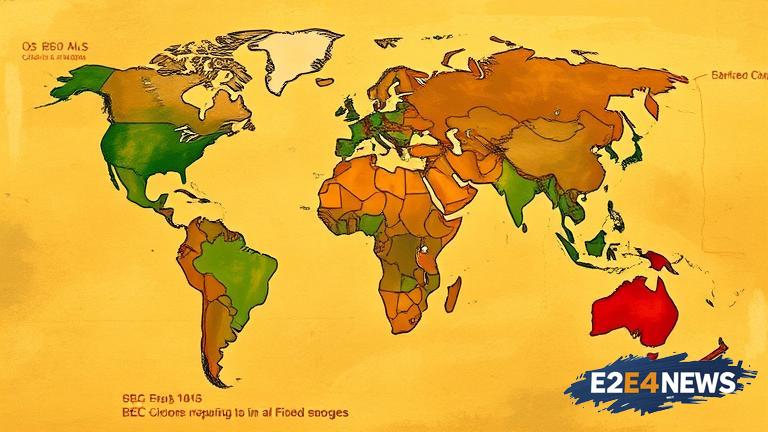The world is facing an unprecedented threat to global food systems due to climate change. Rising temperatures, changing precipitation patterns, and increased frequency of extreme weather events are altering the availability and quality of food. This has significant implications for food security, particularly in vulnerable communities. Climate change is projected to lead to crop yield reductions, decreased fish stocks, and shifted growing seasons. The consequences of these changes will be felt across the globe, from small-scale farmers to large-scale industrial agricultural producers. In some regions, climate change is already causing droughts, heatwaves, and floods, which can have devastating effects on local food systems. For example, in Africa, climate-related shocks have led to reduced crop yields, decreased livestock productivity, and increased food prices. Similarly, in Asia, changing weather patterns are affecting the production of staple crops such as rice and wheat. The impacts of climate change on food systems are not limited to production; they also affect processing, distribution, and consumption. As a result, there is a growing need for climate-resilient agricultural practices, improved early warning systems, and social protection programs to support vulnerable communities. Furthermore, reducing greenhouse gas emissions and transitioning to renewable energy sources can help mitigate the effects of climate change on food systems. The international community must come together to address the challenges posed by climate change and ensure that global food systems are resilient, sustainable, and equitable. This requires a coordinated effort from governments, civil society, and the private sector to develop and implement effective climate change adaptation and mitigation strategies. The consequences of inaction will be severe, with potential long-term damage to ecosystems, human health, and economic stability. Therefore, it is essential to prioritize climate change mitigation and adaptation efforts, particularly in the context of global food systems. The BBC has reported on various initiatives and projects aimed at addressing the impacts of climate change on food systems, including the development of climate-resilient crop varieties, improved irrigation systems, and sustainable agriculture practices. These efforts demonstrate the potential for innovation and collaboration to address the complex challenges posed by climate change. Ultimately, a comprehensive and coordinated approach is necessary to ensure that global food systems are able to withstand the impacts of climate change and provide sustainable, equitable, and nutritious food for all.
